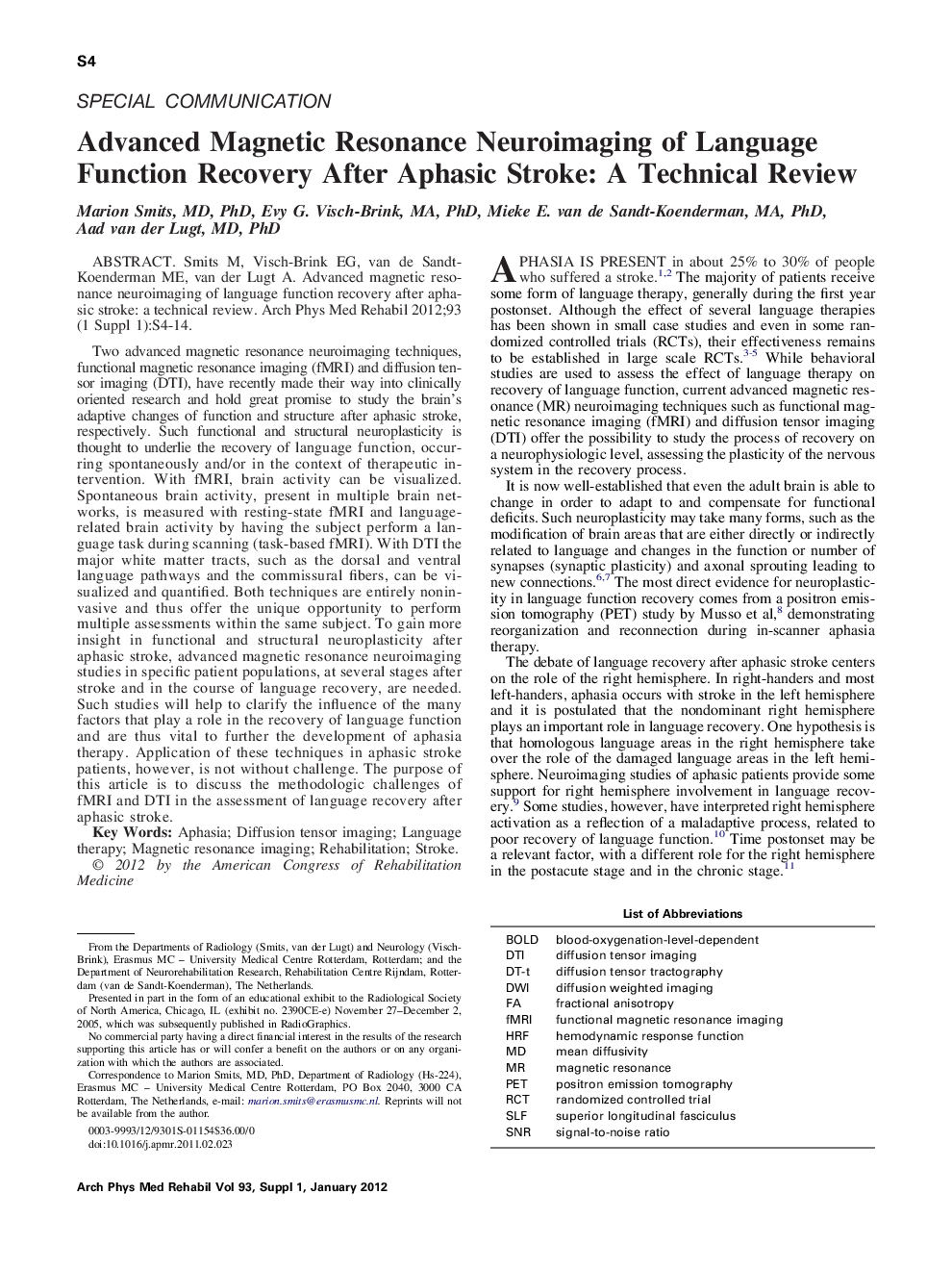| کد مقاله | کد نشریه | سال انتشار | مقاله انگلیسی | نسخه تمام متن |
|---|---|---|---|---|
| 3449755 | 1595731 | 2012 | 11 صفحه PDF | دانلود رایگان |

Smits M, Visch-Brink EG, van de Sandt-Koenderman ME, van der Lugt A. Advanced magnetic resonance neuroimaging of language function recovery after aphasic stroke: a technical review. Arch Phys Med Rehabil 2012;93(1 Suppl 1):S4-14.Two advanced magnetic resonance neuroimaging techniques, functional magnetic resonance imaging (fMRI) and diffusion tensor imaging (DTI), have recently made their way into clinically oriented research and hold great promise to study the brain's adaptive changes of function and structure after aphasic stroke, respectively. Such functional and structural neuroplasticity is thought to underlie the recovery of language function, occurring spontaneously and/or in the context of therapeutic intervention. With fMRI, brain activity can be visualized. Spontaneous brain activity, present in multiple brain networks, is measured with resting-state fMRI and language-related brain activity by having the subject perform a language task during scanning (task-based fMRI). With DTI the major white matter tracts, such as the dorsal and ventral language pathways and the commissural fibers, can be visualized and quantified. Both techniques are entirely noninvasive and thus offer the unique opportunity to perform multiple assessments within the same subject. To gain more insight in functional and structural neuroplasticity after aphasic stroke, advanced magnetic resonance neuroimaging studies in specific patient populations, at several stages after stroke and in the course of language recovery, are needed. Such studies will help to clarify the influence of the many factors that play a role in the recovery of language function and are thus vital to further the development of aphasia therapy. Application of these techniques in aphasic stroke patients, however, is not without challenge. The purpose of this article is to discuss the methodologic challenges of fMRI and DTI in the assessment of language recovery after aphasic stroke.
Journal: Archives of Physical Medicine and Rehabilitation - Volume 93, Issue 1, Supplement, January 2012, Pages S4–S14